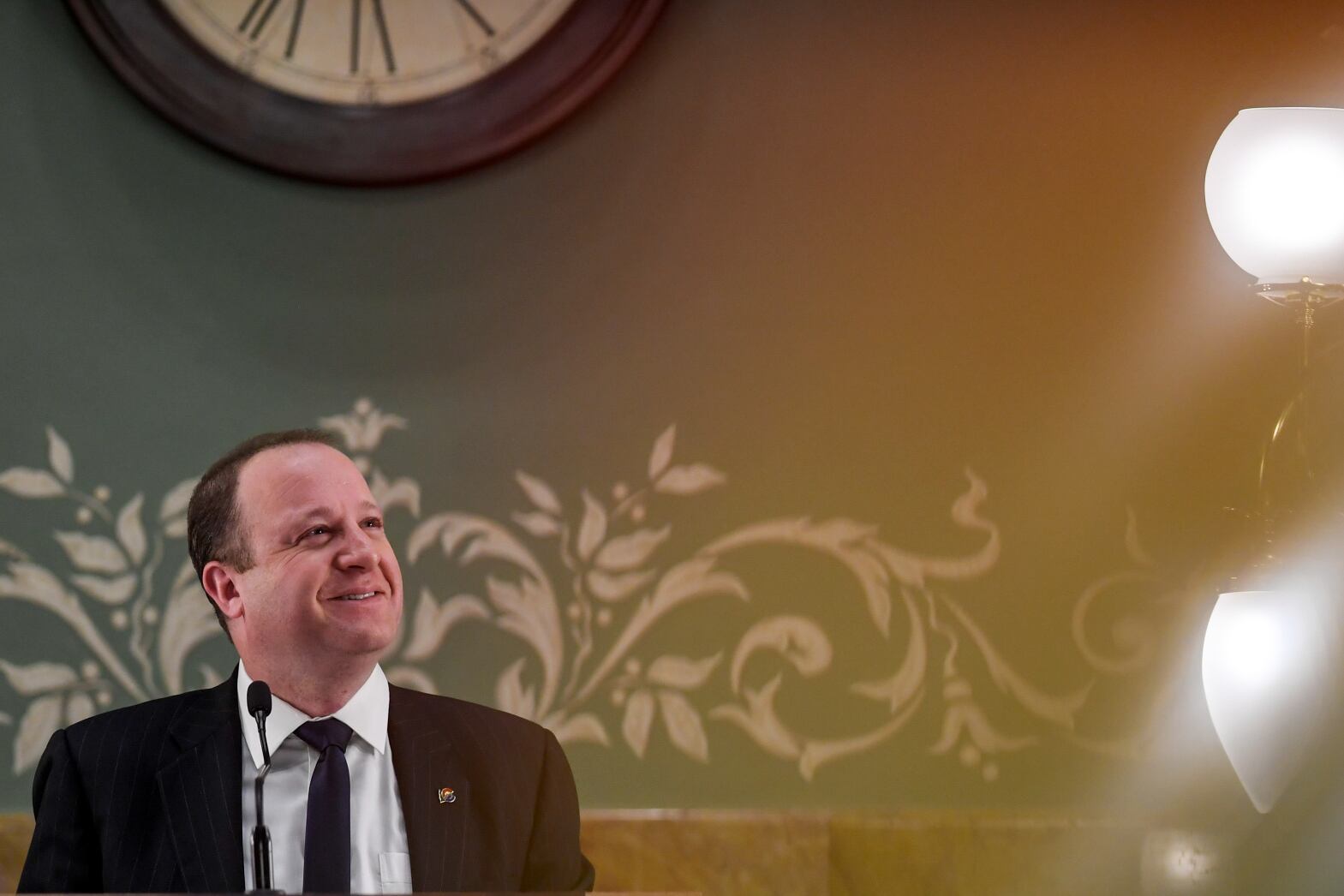Per-pupil spending will increase 6% from this year, special education funding will increase nearly 40%, more high school students will have access to free college courses, and school districts with low property wealth will get more state money under a series of education bills signed by Colorado Gov. Jared Polis Thursday.
The most significant of the bills is also the most mundane. The school finance act is the only bill — other than the budget — that Colorado legislators are required to pass. It lays out how money already allocated in the budget will be distributed to schools. In recent years, lawmakers have used the school finance to set in motion complex property tax changes, give districts more money for English learners, and wade into disputes about school governance.
This year’s school finance act sets what’s known as total program, the base budget for Colorado K-12 schools, at $8.4 billion. The state is responsible for a little more than $5 billion, a 7.6% increase, and local school districts for roughly $3.3 billion, a 2.3% increase. Average per-pupil spending for 2022-23 will be $9,559, up 6% from this year, though the actual amount varies considerably by district.
This represents a record investment by Colorado lawmakers just two years after they made drastic cuts during the depths of pandemic-related business shutdowns.
“I’m so grateful that our economy recovered more quickly than expected,” said state Sen. Rachel Zenzinger, an Arvada Democrat and co-sponsor of the school finance act. “I’m grateful that the federal government stepped up. But what I’m most grateful for is that our legislature chose to prioritize education, mental health, and housing.”
Colorado lawmakers held back $321 million that should have gone to schools, according to a constitutional formula. That’s the smallest the so-called budget stabilization factor has been since it was implemented during the Great Recession.
State Rep. Julie McCluskie, a Dillon Democrat and chair of the Joint Budget Committee, said she’s optimistic lawmakers can fund schools to the level required in law in the next year or two.
This year’s school finance act also extends the time school districts have to participate in pilot programs to identify more students with dyslexia and deploy social workers in elementary schools. These programs were established in law in 2019 but have not been fully implemented during the last two disrupted years.
The school finance act also expands access to free college courses for high school students who stay in school for a fifth year. A group of lawmakers had hoped to do away entirely with caps on how many students can participate in the ASCENT program and get rid of requirements that students repay tuition money if they fail or drop out of courses. That bill stalled out due to concerns about cost, but the idea was incorporated into the school finance act.
The law includes funding for an additional 350 students on top of the 500 slots that were funded in recent years, with participation open to more students in 2023-24. Meanwhile, lawmakers have commissioned a study of extended high school programs.
Polis also signed legislation increasing special education funding and putting the state on a path to meet unfulfilled obligations set in 2006. Districts will get an additional $1,750 for each student with a specialized education plan, a 40% increase, and an additional $4,530 for each student with a more significant disability, a 33% increase. Going forward, funding will increase by inflation annually.
But even with an additional $80 million, school districts will still be responsible for the majority of the additional cost of educating students with disabilities. In signing the bill, Polis called on Congress to fully fund federal special education obligations, a demand that was met with applause.
A third bill related to school funding creates a dedicated matching fund for districts with low property wealth where voters agree to tax themselves extra. Low assessed value means that tax increases don’t generate as much revenue as they would in wealthier districts. Advocates have fought for years to address this unfairness, but solutions have proved politically challenging.
The program is starting with just $10 million, far less than the $165 million that would be necessary to fully implement the idea. Nonetheless, supporters are excited to get the program into law and say even modest increases will make a difference for small rural districts.
Other education bills signed into law Thursday:
- protect teachers from doxxing, which is the practice of posting personal information online to encourage harassment
- give charter schools more authority and responsibility to serve students with disabilities
- waive college tuition costs for youth coming out of the foster system
- and allocate $91 million to encourage regional partnerships between colleges, employers, and K-12 school systems to better connect students with good-paying jobs.
Bureau Chief Erica Meltzer covers education policy and politics and oversees Chalkbeat Colorado’s education coverage. Contact Erica at emeltzer@chalkbeat.org.





